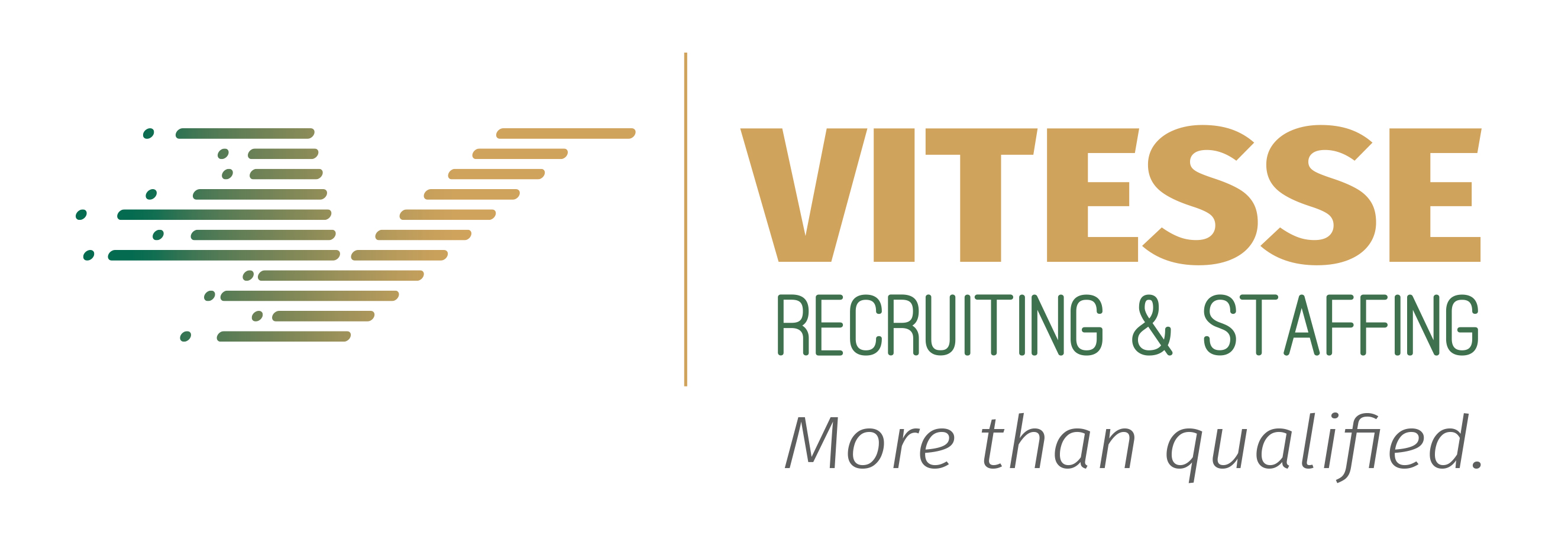Author: Kim Zastrow
I have worked in the recruiting industry for almost two decades and have had the privilege of working with some highly talented recruiters. Just like you, I want to make an effective hire because I want the best for my company, my recruiters, my clients, and the candidates. Through experience, some good, some negative, I’ve developed the following approaches to identify a recruiter who will not only perform the job well but find her daily work a fulfilling experience.
Behavioral Testing
This sort of testing provides insights into how an employee will react in any given situation due to cognitive and personality assessment. It may also shed insight into the individual’s judgement ability, empathy quotient, creative thinking ability, and their degree of persistence in overcoming challenges. My responsibility as an employer and company owner is to match the right person to the right position so that he or she will have the optimal opportunity for success in that role. This really is the goal of behavioral testing.
Introductory Period
The first 90 days of a new-hire recruiter is an introductory period. This is the time when the new recruiter balances and adjusts to the culture and values of our team. During this time, she can decide if we meet her expectations and will work well with her long-term career vision. If our environment is not a good match for the new hire, we can part company without undue surprise or ill will.
Essential Attitudes
Each client and candidate is unique. Recruiters therefore need to be highly attentive to the needs of each one. As recruiters, we are always managing multiple job orders and customers simultaneously. We’re getting time-sensitive, crucial orders, some of which are high-volume from our client companies. Email is often the fastest way to communicate. Yet, we do not know how often does the candidate checks his or her email. Additionally, no matter how clearly the message may have been written, we’re never sure if it’s had the desired result until we hear confirmation or response from the candidate. We find a more effective method of communication is simply phoning. An intuitive recruiter will pick up on nuances in the dialog such as sensing if the candidate is getting discouraged and even thinking about backing out of the process. An email can’t relay this kind of information. Yes, a phone call takes longer, but ultimately it can save the landing process and retain all the hard work that both my recruiter and the candidate have invested.
In our last blog, we gave the example of Debbie, a middle-aged woman in dated clothing walking into our office looking for a job. We discussed how through work to discover her talents, we found that she possesses outstanding skills for organization, working well with others, and won’t miss a day of work. As recruiters, we can’t afford to be hesitant when uncovering details. When we look over Debbie’s resume, we see a large gap in employment history. We have to ask the tough questions such as, “I notice there are a number of years for which you don’t have any employment history. Could you tell me a about that time period?”
The tough questions need to be asked because the hiring company surely will. We find it’s best to “lay one’s cards on the table” to establish a completely open and honest relationship with the candidate. Additionally, an effective recruiter absolutely has to hold a non-judgmental attitude. If a recruiter doesn’t, the candidate will undoubtedly sense this and be deprived of motivation. Our recruiters must be able to actively listen, reading between the spoken and unspoken lines. If a question arises in the recruiter’s mind, he or she can make a brief note of it and ask when there is a break in dialog. When person shares something with us, he’s done that because he feels it’s important for us to know that piece of his story. No, we as recruiters may not think that piece of the story is crucial to the onboarding of the candidate, but it is important in another way. It’s a piece of the bridge we call “trust.”
And finally, showing genuine interest in the candidate is essential if we as recruiters are going to market their abilities to client companies with open positions. We can hardly advocate for someone whom we don’t believe in.
So, as I hire recruiters, I look for individuals who are caring, empathetic, and non-judgmental communicators. Yes, I can and do use behavioral testing and probationary periods, but what I’m truly looking for is the motivation, or what is driving the recruiter along with a willingness to work hard on multiple fronts. Will he or she truly care for the candidates? Does he or she truly want the best possible outcome for the client company? Skills can be taught, but motivation has to come from within. With these characteristics, a recruiter will truly be successful.
VITESSE is a premier recruiting and staffing company because of our focus on the individual needs of both companies and candidates. Our goal is to provide the best fit for the needs of both parties and at the same time to elevate the level of skill and business being provided. Why not see what we can do for you?
For more information on VITESSE, connect with us on Facebook and LinkedIn.
